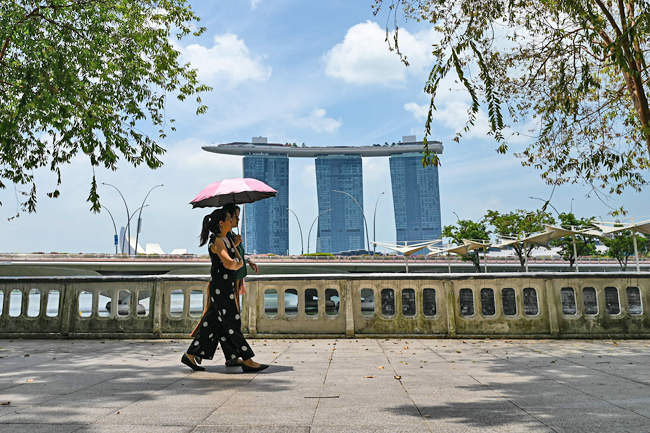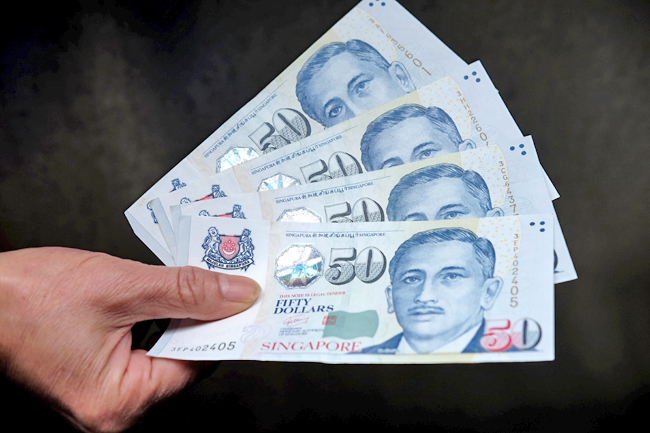ANN/THE STRAITS TIMES – Retail sales in Singapore declined more sharply than anticipated in February, raising concerns among analysts about potential economic fallout from newly announced United States (US) tariffs.
According to data released by the Singapore Department of Statistics (SingStat) yesterday, retail sales contracted by 3.6 per cent year-on-year in February. The decline was partly attributed to the timing of the Chinese New Year, which fell in January this year compared to February last year. In contrast, January saw a 4.5-per-cent surge in sales driven by festive spending, rebounding from a 2.9-per-cent drop in December.
Even after accounting for seasonal factors, February’s decline was significantly steeper than the 0.2 per cent dip forecast by analysts in a Bloomberg poll. Excluding motor vehicles, retail sales registered an even sharper year-on-year fall of 6.7 per cent, reversing the 4.8 per cent growth in January.
Analysts warned that the situation could worsen, with the Trump administration’s latest round of sweeping tariffs on Chinese goods expected to have broader implications for Singapore’s open and trade-reliant economy.
“Escalating global trade tensions could negatively impact Singapore’s small and open economy, potentially softening employment conditions and consumer confidence, and weigh on household spending and retail sales,” said Senior Economist at DBS Bank Chua Han Teng.
Economists caution that if global uncertainties continue to dampen business sentiment and lead to slower hiring or job losses, consumer spending and confidence in Singapore could face further pressure in the months ahead.


When the Chinese New Year effect is stripped out, retail sales in the first two months of 2025 edged up 0.8 per cent, thanks to car sales. Excluding motor vehicles, sales contracted by a smaller 0.5 per cent in January and February compared with 2024.
“The decline in total retail sales in January to February (when car sales are excluded) suggests that domestic consumption remains subdued,” said Maybank Securities Singapore economist Brian Lee.
“The spending boost from the SGD300 CDC vouchers given to each household in January has been short-lived.”
He added that retail sales are likely to remain subdued this year. “Consumer demand is being diverted overseas with the strong Singdollar. Household sentiment could weaken amid a dimming economic outlook and broadening global trade war. High manpower and rental costs continue to weigh on operating margins.”
OCBC Bank’s chief economist and head of global markets research and strategy Selena Ling said that US President Trump’s latest round of tariffs will add to the “risk-off mood” due to the heightened uncertainties, referring to a situation where market sentiment is more cautious, and the appetite for risk is lower.
Economists said Trump’s tariffs may not necessarily lead to higher retail prices here.
Ling said that deflationary effects, or decreasing price levels, are more likely as the economies hit by the tariffs see dampened domestic demand and growth.
Maybank’s Lee said, “The net effect of Trump’s tariff war should be disinflationary, due to slowing global demand and a global glut of goods displaced by high US tariff walls.”
In February, the biggest year-on-year decline in sales was for wearing apparel and footwear (18.4 per cent), followed by department stores (14.6 per cent), and supermarkets and hypermarkets (13.3 per cent).
Takings at the till rose year on year for other categories such as motor vehicles (20 per cent), optical goods and books (6.4 per cent), and computer and telecommunications equipment (4.3 per cent).
Sales of food and beverage services fell 5.6 per cent year on year in February, reversing the 10.3 per cent jump in January. Singstat also attributed the lower F&B sales to the Chinese New Year timing.
On a seasonally adjusted month-on-month basis, F&B sales dropped 1.4 per cent month from January, reversing from the 4.9 per cent growth in the previous month.


